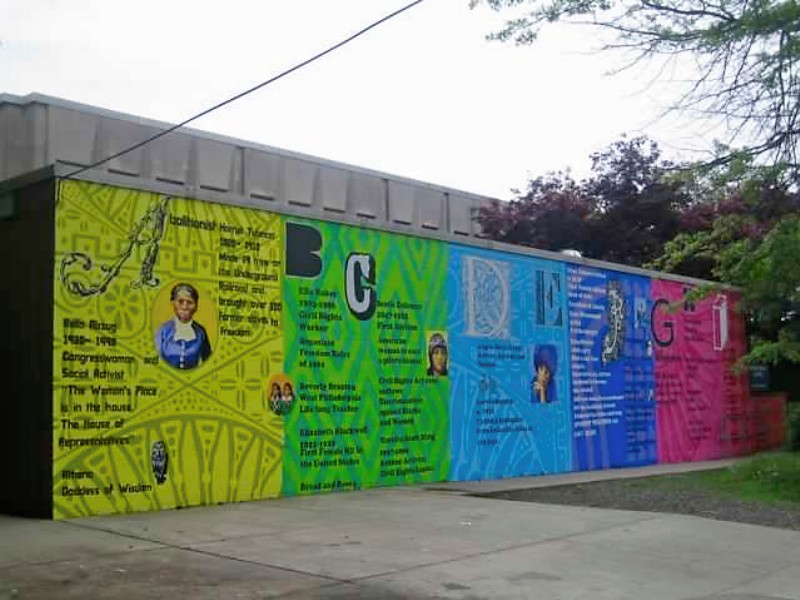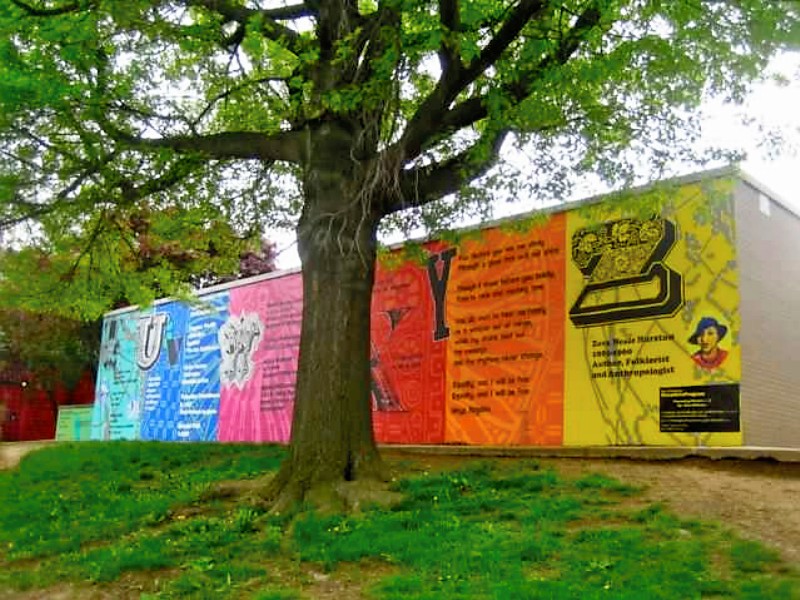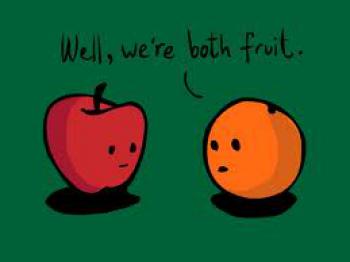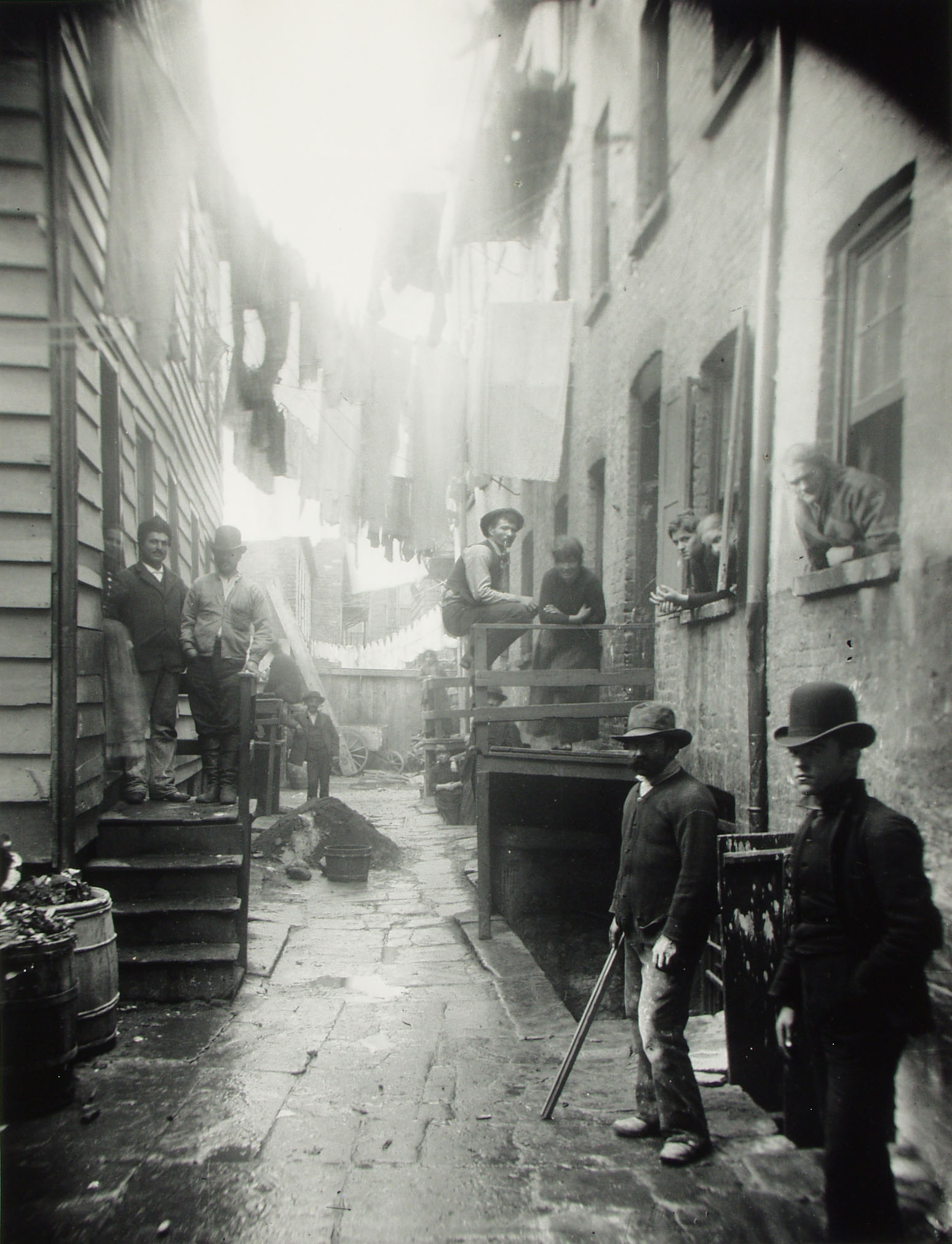Serendip is an independent site partnering with faculty at multiple colleges and universities around the world. Happy exploring!
Walled Women



POST YOUR THOUGHTS HERE
Welcome to the on-line conversation for Women in Walled Communities, a cluster of three courses in a new 360° @ Bryn Mawr College that focuses on the constraints and agency of individual actors in the institutional settings of women's colleges and prisons.
This is an interestingly different kind of place for writing, and may take some getting used to. The first thing to keep in mind is that it's not a site for "formal writing" or "finished thoughts." It's a place for thoughts-in-progress, for what you're thinking (whether you know it or not) on your way to what you think next. Imagine that you're just talking to some people you've met. This is a "conversation" place, a place to find out what you're thinking yourself, and what other people are thinking. The idea here is that your "thoughts in progress" can help others with their thinking, and theirs can help you with yours.
Who are you writing for? Primarily for yourself, and for others in our cluster. But also for the world. This is a "public" forum, so people anywhere on the web might look in. You're writing for yourself, for others in the class, AND for others you might or might not know. So, your thoughts in progress can contribute to the thoughts in progress of LOTS of people. The web is giving increasing reality to the idea that there can actually evolve a world community, and you're part of helping to bring that about. We're glad to have you along, and hope you come to both enjoy and value our shared explorations. Feel free to comment on any post below, or to POST YOUR THOUGHTS HERE.

Memo II: "Othering" Offenders
In this essay I explore the consequences of social distancing prisoners and, on the flipside, the consequences that arrive when one wants to, and attempts to, close that distance.


Close Reading of Eva’s Man through the Lens of Wendy Brown
In reading Eva’s Man by Gayl Jones, it is interesting to note the paradox of a writer telling the story of a character marked by silence. Eva often refuses to answer questions asked by many people in her life, and the narration of the story (which is from Eva’s perspective) often switches back and forth in time, leaving the reader often feeling confused and disoriented. However, although we may label Eva’s character as silent/silenced, there are still 177 pages devoted to telling us her thoughts and memories. How do we reconcile thinking about Eva as a silent/silenced character while acknowledging the book gives us an account of many parts of her life? In critically examining Eva’s Man through the lens of Wendy Brown’s work about politicizing trauma, it is at times difficult to hold together Jones’ action of writing the novel and Eva’s action of choosing when to speak or stay silent.

Look at it through a bigger frame.
This is the image I used in my summary. It is a photograph by Jacob Riis, taken in 1890, that I feel exmplifies Howard Zehr's ideas of looking at crime/criminals with a bigger frame in mind. This photos purpose was to show that enviroment was a cause of crime and not biology.


Finding the self in walled communities
This is Sharon Wiggins, a lifer who we were told by some of the women in the Cannery has now been released. This photo by Howard Zehr really captured my attention, and made me question how incarcerated men and women adapt to, and are even able to do introspective reflection in their prison environments. 

Vision Memo 2
As I said before, I really loved Zer's talk about close-up vs. bird's eye view. I wrote this paper on how this frame can be used to think about ways in which we define our identities based on the institutions that we are part of.

my thoughts for tomorrow (I will be absent)
I won’t be in class tomorrow (I saved myself $100 by taking an earlier bus home for Thanksgiving), but here are some questions and thoughts I have about Eva’s Man. On page 169, there seems to be a conversation going on between Eva and her psychiatrist (who’s gender I am not sure was revealed, but I am assuming that he is male?) The psychiatrist asks, “Why did you kill him?” and Eva replies, “I filled in the feelings”. This short part seems to support a theory that we discussed last class: Eva killed Davis because he represented all the other men in her life. She saw him and her relationship with him, and “filled in” all the other feelings of mistreatment/abuse she had received from men. This is further supported on page 171 when she appears to be talking about many men that have been in her life, but only refers to them as “he”, making them seem like one entity.

Eva's man
I have to admit that I didn’t enjoy this reading experience. I hesitate to say this because as an English learner, I ought to learn to read all kinds of literatures. But as a reader, I certainly would not choose this kind of book to read if I don’t have to. The story is depressing and fragmental storyline just make it harder for me to understand.
In another piece which I normally would not read for fun, Sommer talked about the danger of readers wanting to know everything in the story and felt the sympathy while reading. Indeed, when I was reading this piece, the usual tendency to make connection and understand every detail failed because of the author’s special arrangement unique way of narrating Eva’s story. I was annoyed at first because the disconnected plots and disoriented timeline contradicted with the easy-following dialogues. During discussion, we talked about the reasons why the story is the way it is now. We thought that maybe Eva could not remember things clearly and thus unable to tell the story again. When I was reading the piece, I couldn’t cut my thoughts of thinking Eva’s experience as real-life as at least based on some proportion of real-life experience and kept thinking that I want to know more about the Eva’s story. Just as Sommer talked in her article, the tendency for reader to be greedy can be dangerous and jeopardize the reading experience. Well, I still have a ambivalent feelings about Sommer’s opinion, but she is definitely right this time.

Silence vs. Metaphor: which do we choose?
Something that happened at the end of our class at the Cannery last week had me thinking about the connection between metaphors and silence. As one who's never quite grasped the meaning or function of metaphor, I was thankful for Howard’s straightforward description. He described metaphors as a tool to explain ideas that can't be put to words by using other objects or ideas as a medium of comparison. Metaphors give words to otherwise unexplainable ideas. What I took away from that explanation was the idea that metaphors provide a sense of agency to those who perhaps lack a broad vocabulary or just those for whom words don't suffice a way to express an experience or feeling. This tool then provides a sense of agency because, all too often, you rendered broken if you can't express yourself in a way that others can understand. In what I saw to be a distinct parallel, Anne explained mentioned at the end of Friday’s class that silence, too, is a strategy that can be used when words just don't work. And, as we've established many times in class, silence is understood as way to exert power and agency in assuring that you aren't misunderstood or your words misused. So, silence and metaphor are used in similar situations but result in vastly different outcomes. What does this say about the choice between using metaphors and choosing silence? Is one more effective than the other?

Reflections On Eva's Man
I loved reading Eva's Man and really enjoyed trying to figure out the character, Eva. However, as I read, I found myself more amused, perhaps this is not the best word, with her story than feeling bad for her. I know pity was not the intention of the author, but I do think I should have felt something for Eva. As I read the disturbing encounters Eva had with the men in the book, I couldn't help but sympathize with the guys, whether it was the nasty little boy with the dirty popsicle stick or the disturbed old man in the hallway. What were the stories of the males? What made them act this way? Who or what hurt them in the past that led them to act out their personal abuse?
I know in our class discussion we focused part of the conversation on Eva being the victim and, while that is true, I see all characters involved as victims in the sense that they all are apart of a cycle of abuse that goes on in cultures, communities, etc. Lets be real, I find it hard to believe that a young boy wakes up and goes, "I am going to fuck this girl with a popsicle stick today." Therefore, it is important to recognize that although Eva's Man is a great book, whole stories are not captured and, perhaps, can't be captured.

Staring
Rosemarie Garland Thomson explores how staring can be a generative experience.
She explained to us why we feel inclined to stare. Although there is a symbolic order to sight—our mothers teach us as children not to stare, and we are aware of how much eye contact is too much eye contact -- we stare when we are incredibly curious about something new/novel. Our eyes linger or get stuck because we are desperate to make sense of a thing. We are looking for clues and explanations about why this sight – this person, does not conform to or appear the way we understand that people should. Thus, it’s a natural desire resulting from interest/desire to know.

Dorm Rooms As Niches?
One of the students in my other class did some research on Erdman, and discovered that Louis Kahn, the architect who designed it, said, “A dormitory should not express a nostalgia for home, it is not a permanent place, but an interim place.” Can an interim place be a niche?

Wondering about the nature of BMC...
While reading the Jane Thompkins for Jody's class, I found myself disappointed in Thompkins during her transition from Bryn Mawr for undergrad to Yale for Grad school. At Bryn Mawr, students are unique, have the space to express their intelligence unashamedly and own their education. However, when Thompkins, as a BMC graduate, described her experience at Yale, she had to be sure she was right before speaking up, she felt dumb if another student beat her to an answer and she did not freely, along with her peers, express her love for her interest in English and poetry.
I am disappointed by Thompkins because as a graduate from Bryn Mawr, I am surprised that she did not carry with her the characteristics of a Mawrter to Yale. Perhaps her experience at Yale is not a reflection of her inability to be a Mawter (and perhaps this term need to be unpacked more) beyond Bryn Mawr. It could be that the culture of Yale demanded a different type of student--one that was more competitive and closed-off emotionally from the material. So, now I wonder if BMC does the same. Does the nature of BMC call for a "type" of student and/or experience? Is there a pressure unique to BMC that makes us act a certain way? If so, what is it? How and when and, above all, do we pretend to be something we are not under this pressure?

Women and Honor (Julia posting through Esty's account)
As stated in the title line, this is Julia posting from Esty's account (which she kindly lent to me until my own is restored).
I've probably made clear in one or many classes that I consider Adrienne Rich to be my favorite poet and perhaps even writer of all time. The first poem of hers I ever read was "Diving Into the Wreck." Here is a link to the poem from Poets.org. The poem ends:
We are, I am, you are by cowardice or courage the one who find our way back to this scene carrying a knife, a camera a book of myths in which our names do not appear.I found myself thinking continuously about this poem when reading "Women and Honor: Some Notes on Lying." The phrase that grabs me the most is, "by cowardice or courage." Rich mentions both throughout her piece on honor, but I don't think she discusses either enough.
Our truths are often created for us. They can be conditions that we do not choose but that we often must choose to disclose. I wonder how important the distinction between cowardice and courage are. Is one always lying and the other always honesty? If I find myself in the wreck, does it matter if it is cowardice or courage that caused me to arrive there?

Blackout Poetry
Blackout Poetry
Yangon, Myanmar (AP)
earthquake struck
feared
slowly,
extent unclear
response
lost
devastating
reported no
epicenter
collapsed
on state television
deaths
of the
clash
massacre
coldbloodedly
clash
looking for communication
holding up assault
wounded
clashes
cause
death
war
promised
deadly clashes
--------
among
possible violation of
process
Educational
a single poor
complaint offers
devastating
flaws
who can afford
to be a good
performance
further
discriminatory
including leadership....
--------
hurricane was
powerful
mighty
had
windows,
"There they go.
distressing. I grew up with those trees."
insulting
not yet
downed
memory
--------
the country
housing
two million units
black-listing
impossible for them to rent--
But many see no alternative.
"I could not let my children and my grandchildren starve."
squat-
squatting
squat
qui-
embarrassed
protesting
"shame on you"
The crowd
outnumbered police
But one day, he said, he got a call.

Heads up!
Hi guys! I was reading through Offerings to Athena tonight looking for information on my topic and I just wanted to give a heads up to those pursuing topics revolving around race (both African/African American and Asian) that there are some specific sections in the text devoted specifically to each of those subjects. So, check it out! It's on reserve in Canaday.

Silent Niches
I wondered, after visiting the Cannery on Friday and discussing the level of privacy (or lack thereof) that the women feel there in terms of where they can find a silent moment for themselves. On the Bryn Mawr side, we discussed having semi-chaotic shared spaces, where roommates and friends keep us from having constant silence--which is often a good thing! But I do know that I often appreciate a little time to myself, a niche, if you will, where I can be silent and on my own, without those outside forces and people (which I usually enjoy and appreciate) coming into my space. I wonder how the women of the Cannery feel about this--would they like more "me" time, where they could be silent and alone? Is sacrificing that privilege just par for the course with being in prison? Of course, my "me" time doesn't take into account the time that I enjoy being silent with other people, so is that something of a substitute for alone time in the walls of a prison? Do group quiet activities like reading or praying take the place of a silent, solitary niche?

Adrienne Rich’s “Women and Honor: Some Notes on Lying”
I was very interested in a particular allusion that seemed too often invoked in the conversation to be coincidental: the discussion revolving around “the void.” It is described as “not something created by patriarchy, or racism, or capitalism…. It is beyond personality; beyond who loves us or hates us” (191). The conversation creates the feeling of something not quite describable or fully explainable; something that lies just beyond and outside of words.


